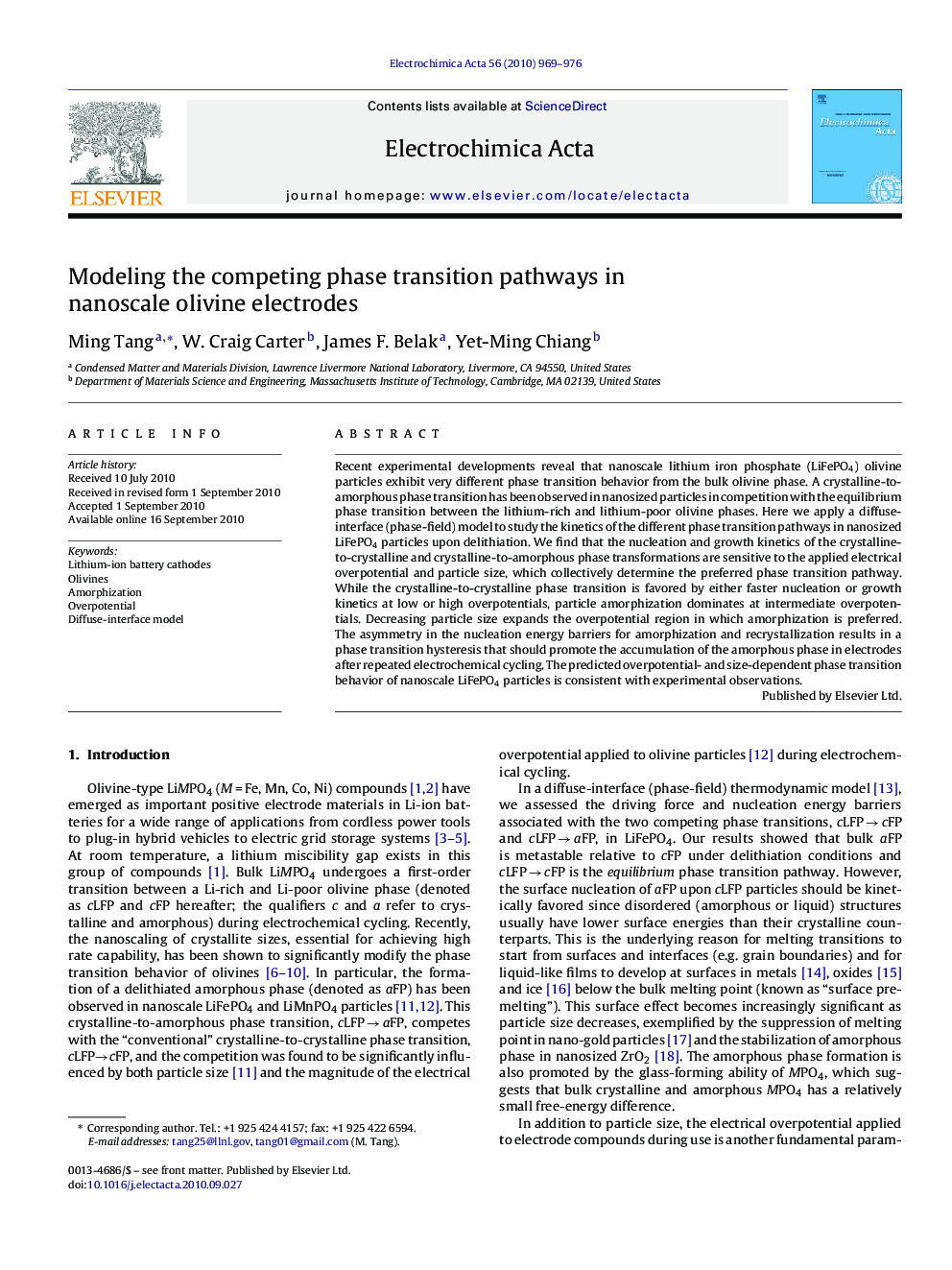| کد مقاله | کد نشریه | سال انتشار | مقاله انگلیسی | نسخه تمام متن |
|---|---|---|---|---|
| 191697 | 459726 | 2010 | 8 صفحه PDF | دانلود رایگان |

Recent experimental developments reveal that nanoscale lithium iron phosphate (LiFePO4) olivine particles exhibit very different phase transition behavior from the bulk olivine phase. A crystalline-to-amorphous phase transition has been observed in nanosized particles in competition with the equilibrium phase transition between the lithium-rich and lithium-poor olivine phases. Here we apply a diffuse-interface (phase-field) model to study the kinetics of the different phase transition pathways in nanosized LiFePO4 particles upon delithiation. We find that the nucleation and growth kinetics of the crystalline-to-crystalline and crystalline-to-amorphous phase transformations are sensitive to the applied electrical overpotential and particle size, which collectively determine the preferred phase transition pathway. While the crystalline-to-crystalline phase transition is favored by either faster nucleation or growth kinetics at low or high overpotentials, particle amorphization dominates at intermediate overpotentials. Decreasing particle size expands the overpotential region in which amorphization is preferred. The asymmetry in the nucleation energy barriers for amorphization and recrystallization results in a phase transition hysteresis that should promote the accumulation of the amorphous phase in electrodes after repeated electrochemical cycling. The predicted overpotential- and size-dependent phase transition behavior of nanoscale LiFePO4 particles is consistent with experimental observations.
Journal: Electrochimica Acta - Volume 56, Issue 2, 30 December 2010, Pages 969–976